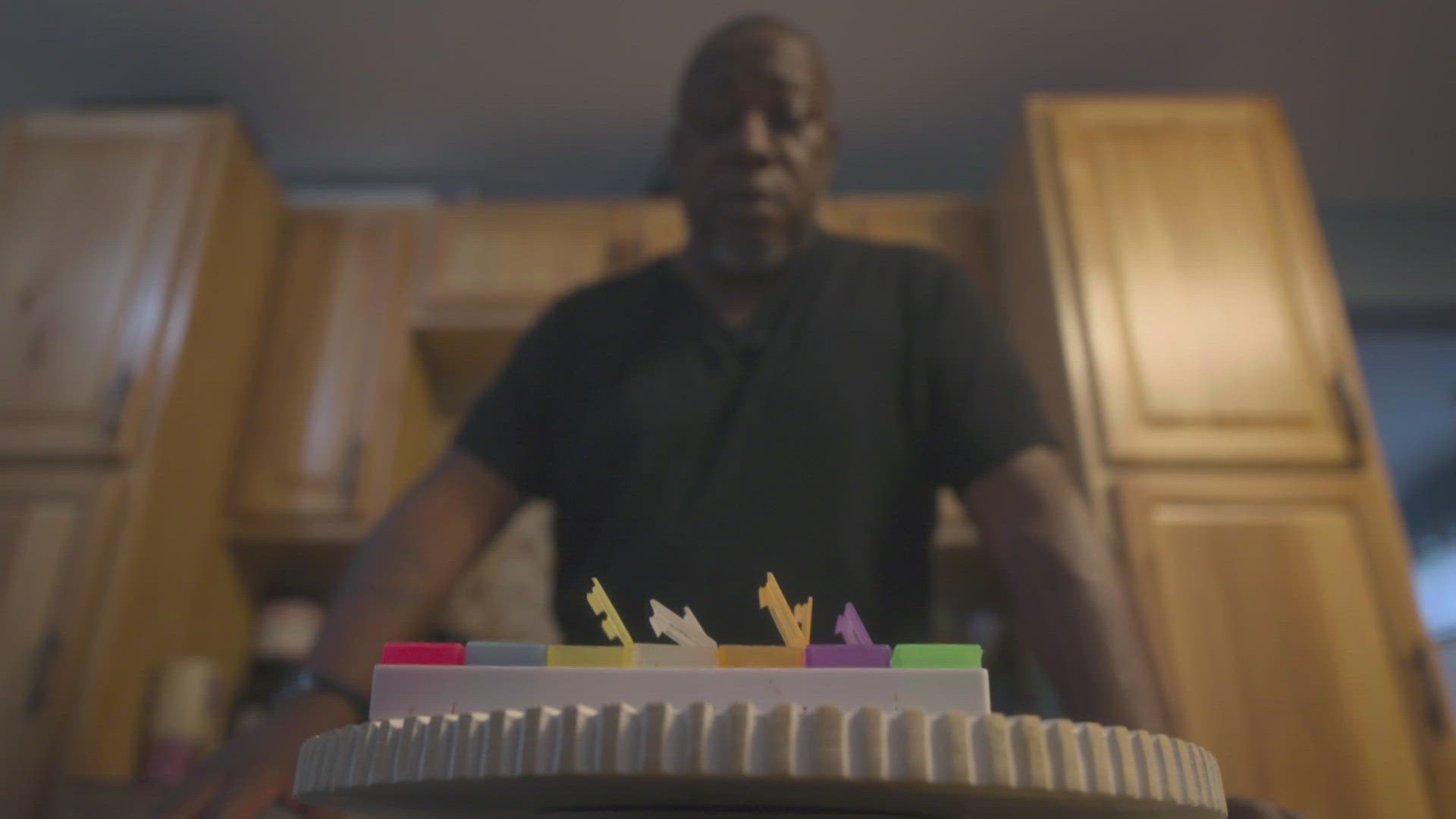OLYMPIA, Wash. — A medical test declared as racist continues to impact countless Black people suffering from kidney disease.
KING 5's Facing Race team reported in June that many hospital systems around the nation have corrected their use of the faulty equation that erroneously stereotypes Black people as "more muscular." The wrongful stereotype led to medical professionals calculating Black patients' kidney health as healthier than they are, delaying urgent care and transplants.
Arthur Maddox of Olympia says he is one of those people, and he is suing Swedish and the United Network for Organ Sharing (UNOS), for not updating his timeline as quickly as they could.
After living with kidney disease for eight years, Maddox has a new kidney as of January 2024.
"I remember we were almost ready for bed and I received a call about a kidney," Maddox recalled.
But he had to wait two extra years for it, because he's Black.
"They never told me about you know, Black folks, African Americans were being rated different on -- being put on the kidney list different. At the time I thought I was already on the list," Maddox said.
Over the course of those extra years, his kidneys failed, forcing him to undergo two different types of dialysis.
When his home dialysis failed, he almost died.
This is all because of a faulty assumption that national kidney transplant organizations had made for decades that Black patients have stronger kidneys due to an erroneous stereotype that they have greater muscle mass.
Arthur said he felt violated when he found out that his progress was delayed due to the color of his skin.
"Not only did I serve this country well, I've been to three hazard duty combat tours overseas. (I was) glad go anytime they ask," Maddox said. "And here I am being treated like this."
Because of the wait and near-death experience, Maddox, a highly decorated Marine, who as a civilian took on a physically demanding job at Joint Base Lewis-McChord, had to medically retire early.
"How dare they keep us from being listed due to a non-scientific fact on how we should be rated, or rated when we get a kidney," Maddox said. "That's disgusting."
Disgusting, but unsurprising, Maddox added.
Now his wife Tiara, who also has medical issues, is the sole breadwinner.
"Our finances wouldn't have taken such a hit," she said. "It's a shock when you go from two incomes to one, and then you make do. Everyone else adjusts. That's what you keep doing is adjusting."
David Ko is Arthur's attorney. Ko said as a person of color himself, he felt a responsibility to take on the case.
"It's no secret that racism still exists in this country," Ko said. "As someone who has experienced that, I felt deeply empathetic to Mr. Maddox because he is going through far worse than I ever went through. He's going through something where he needs an organ to survive and he's counting on an entity whose job and responsibility it was to manage and evaluate and implement a policy that would be fair to all. But clearly it wasn't."
Swedish said in a statement:
"Swedish moved expeditiously to implement the changes and notify patients...and Mr. Maddox, was timely added to the waitlist and received a lifesaving transplant from Swedish."
UNOS declined to comment on pending litigation.
Maddox said he's still not feeling great.
"We're seven months in. My body feels like it's at 20% still," he said.
Despite knowing this legal battle is going to be a long one, Maddox said he's ready to lead a call to action.
"I'm pretty certain people have lost their lives because of this," Maddox said. "Thank God, I didn't pay the ultimate price for this mistake, but I just feel I'm ready to speak out and hopefully other folks will come forward in the future."
Swedish's full statement is here:
"Providence Swedish does not discriminate against its transplant patients. Swedish has always complied with policies set forth by the United Network for Organ Sharing (UNOS) and the Health Resources and Services Administration (HRSA), the federal agency that oversees organ transplants in the U.S.
"After UNOS changed its policies to bar any race-based coefficients in calculating transplant patients’ Estimated Glomerular Filtration Rate (“eGFR”) scores, Swedish moved expeditiously to implement the changes and notify patients. In fact, the plaintiff in this lawsuit, Mr. Maddox, was timely added to the kidney transplant waitlist and received a lifesaving transplant from Swedish. Indeed, Swedish did everything in accordance with what the policies and procedures required by adding Mr. Maddox to the waitlist, timely updating his place on the waitlist, and when UNOS matched Mr. Maddox with a kidney, transplanting it for Mr. Maddox. Swedish’s actions saved Mr. Maddox’s life.
At Providence Swedish, our commitment to health equity is unwavering. The transplant team is dedicated to providing the best lifesaving medical services to its patients. We proactively advocate for policies that reduce health disparities and ensure that we follow protocols and make necessary changes to address systemic inequities in the health care system.
The Providence Swedish family of organizations welcomes all who come through our doors from patients to employees, without discrimination and regardless of race, sex, gender identity, disability, national origin, veteran status, or any other legally protected status. Our full nondiscrimination policy can be found here and equal employment opportunity policy here."
Both Swedish and UNOS have motioned a judge to dismiss the case. The motion hearing is scheduled to happen in the next few months.

